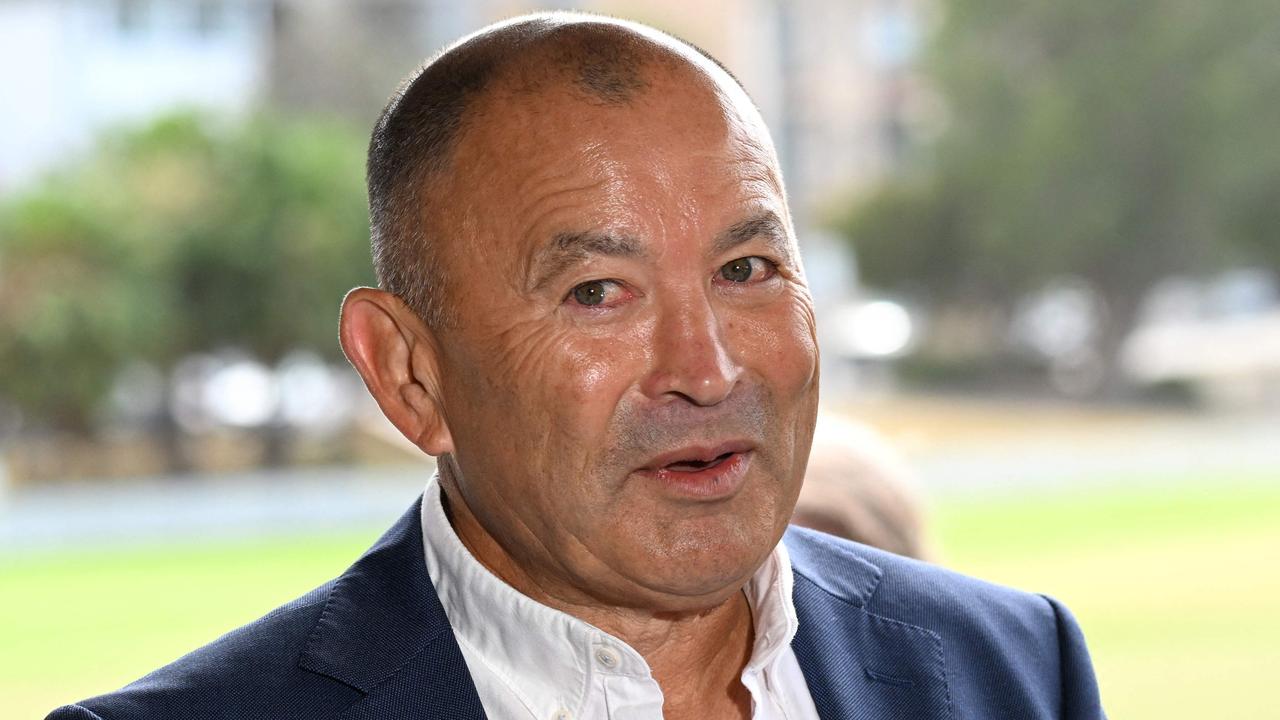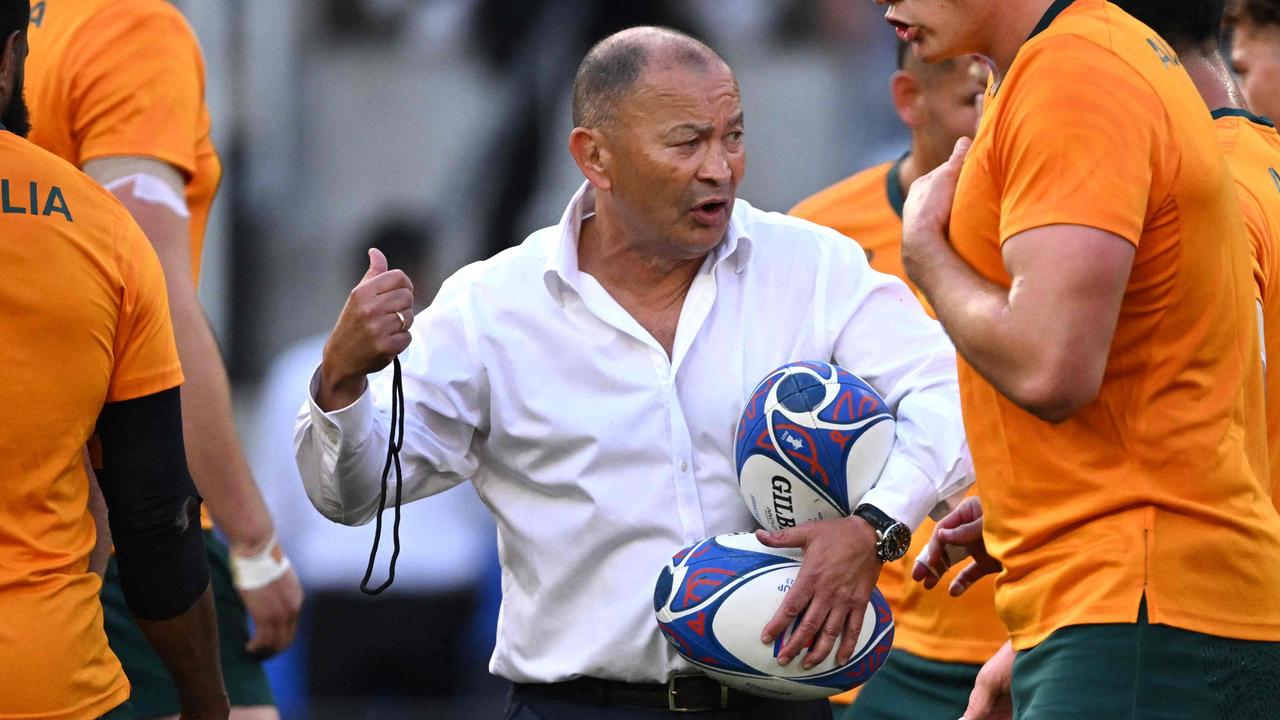Japan rugby boss offers new coach unparalleled power as Eddie Jones eyes Wallabies exit
Eddie Jones says he’s had “no discussions” with Japan, but a powerful ally looks to be the man attempting to lure the Wallabies coach into the top job.
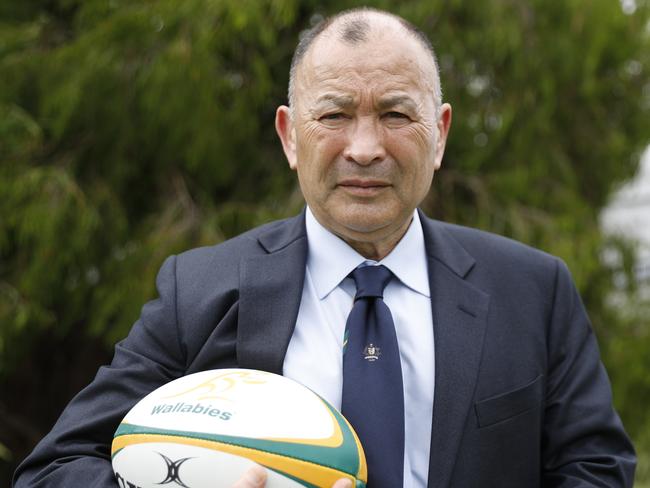
Rugby
Don't miss out on the headlines from Rugby. Followed categories will be added to My News.
A relationship that began 27 years ago is at the heart of the diabolical coaching saga involving Eddie Jones and his links to the Japan top job.
Jones has been a friend of Japanese Rugby president Masato Tsuchida for nearly three decades, since the time he first coached in Japan as a national assistant coach in 1996 before joining Suntory.
Jones tried to sneak back into Australia on Thursday night before being fronted by a television reporter, and when asked about the links to Japan said he’d had not spoken to them.
“I’ve had no discussion with them, mate,” Jones said.
Yet sources told Code Sport that Jones has spoken with the JRFU, and plans to hold another interview next month.
As revealed by this masthead on Thursday, Jones is seeking unprecedented power to remain head coach of the Wallabies.
Signed until the end of 2027, Jones wants Rugby Australia to monopolise all Super Rugby clubs and centralise high performance operations so he can control the system from top down, including training loads and strategy.
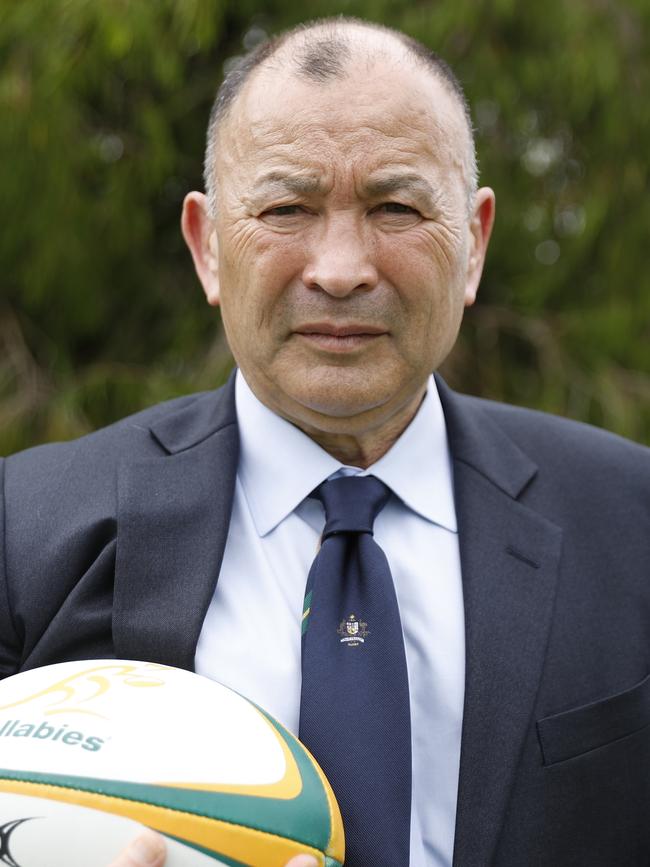
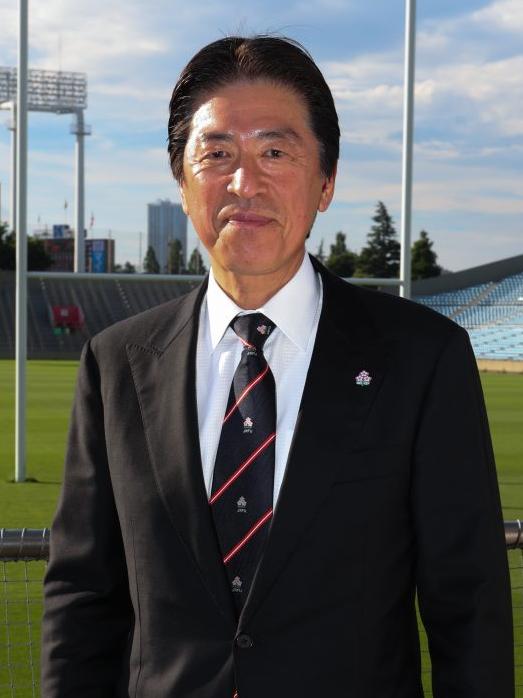
RA is attempting to centralise the game but is facing stiff resistance from Queensland, the Brumbies and Western Force, who are happy to have high performance under one national umbrella but won’t give over control of their finances – which RA believes is the only way centralisation can work.
Interestingly, Tsuchida says the coach who takes over from Jamie Joseph to lead Japan from next year will be given extraordinary powers.
“I want the new head coach to oversee all levels, from high school, under-20 to the top level, I want the person to do it consistently, including university rugby,” Tsuchida said after Japan returned from their World Cup campaign this week.
Tsuchida, who was made JRFU president last year, remains a board member at Suntory, where Jones still holds a lucrative consulting role.
This week, Japanese media outlet Sponichi reported: “This spring, Masato Tsuchida, president of the Japan RFU, with whom he has had a honeymoon relationship since his days at Suntory, contacted him (Jones). Contract negotiations have been held privately behind the scenes and preparations are under way for his first return since the 2015 World Cup, at which he led them to a historic three wins.”
Jones is expected to address Australian media on Tuesday.
RA chairman Hamish McLennan and chief executive Phil Waugh took Jones at his word that he wasn’t secretly negotiating a job with Japan while signed to a $5 million deal with them.
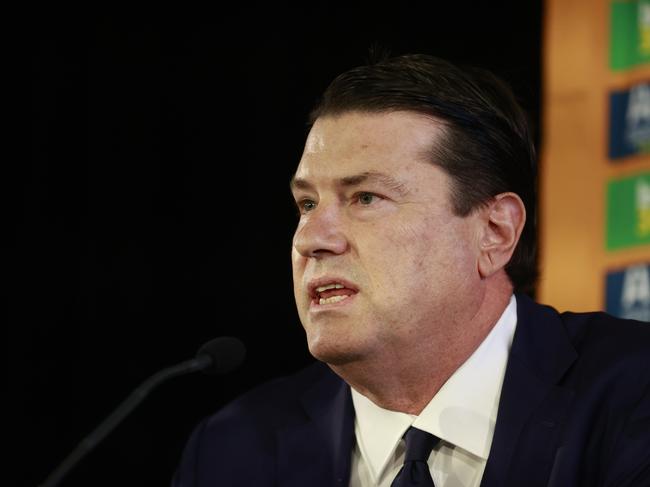
However, the noise from all corners about Jones and Japan has become so incessant they must now contend with the fact that Wallabies fans have lost complete trust in the coach.
Exit clauses in his contract will dictate how swiftly Jones’ future is decided, but RA will find it tough to sell to rugby supporters that the coach will be kept on for another four years, with even greater influence across the nation’s rugby system, when most are now demanding Jones’ immediate termination.
Respected former Wallaby and high performance manager, Dick Marks, said the rubble Australian rugby finds itself in as in large part the fault of ambitious corporate ladder-climbers have been using Rugby Australia board member positions to further their careers.
“I have seen first-hand, and it’s not only the national union but the state unions as well, who get on to these boards as a way of networking and getting other corporate jobs,” Marks said.
“They form committees and the powers that be get them through with elections, these faceless people tend to become a clique and look after each other. They apply for board positions as a stepping stone for something more lucrative.
“I believe that people at grassroots level are just as qualified to be on the boards, they are disregarded because of a lack of accounting or legal expertise, but they know the game. And these boards have access to expensive consultants who can look after that side of things.
“What you struggle to find on a lot of these boards are people who know rugby from the grassroots level.”
DICK MARKS’ FIVE FIXES FOR AUSTRALIAN RUGBY
GROW PARTICIPATION IN SCHOOLS
“The more milk you’ve got in the can, the more cream comes to the top,” Marks said.
“Participation is No.1. I know we’ve got a lot of competition from the AFL, NRL and soccer but we need to re-establish rugby back in our school system by getting clubs forming competitions out there, so kids can see a pathway from school to clubs to professional rugby.”
MARKET RUGBY’S POST-CAREER BENEFITS
“The networking you get just from rugby beats most other sports,” Marks said.
“If you show them career development in conjunction with professional rugby, you get parents more interested in putting their kids into the game as opposed to other sports.
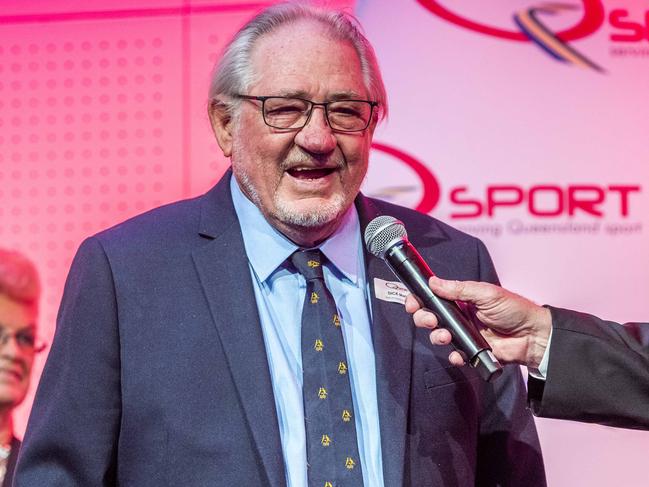
REDUCE TO THREE SUPER RUGBY TEAMS
“It’s ridiculous to think we’ve got the depth of New Zealand,” Marks said.
“You’ve got to play in competitions where some teams are better than you. Back in the 1970s Queensland were the easybeats, and then they started playing regularly against New Zealand teams and built their caps.
“By the 1980s and 90s, Queensland were the second best team in the world behind Auckland, in my opinion.
“What we need to do now is concentrate our talent, so we can start to develop combinations.
“If we go back to three Super Rugby teams, we can have a secondary national competition with a promotion-relegation system so every club gets the chance to move up.
INTRODUCE A NATIONAL COACHING PROGRAM
“We don’t have enough good players,” Marks said.
“We abandoned the development programs we had when we had a good coaching education system.
“You’d have a three-day demo, you’d bring in coaches from the Wallabies right down to clubs and schools, and the coaches would get just as much from each other as they would from the lecturers.
“Basic knowledge was transferred from the clubs to the schools.
“You can’t learn by ticking boxes online. A residential coaching program brings a whole lot of people and ideas together.
GET WALLABIES BACK TO CLUB RUGBY
“In the pre-season, get one Wallabies player to play against club players,” Marks said.
“Those club players would learn so much from just that one game, and the approach of the Wallabies player and their skills, that it would enhance their season.”
More Coverage
Originally published as Japan rugby boss offers new coach unparalleled power as Eddie Jones eyes Wallabies exit




